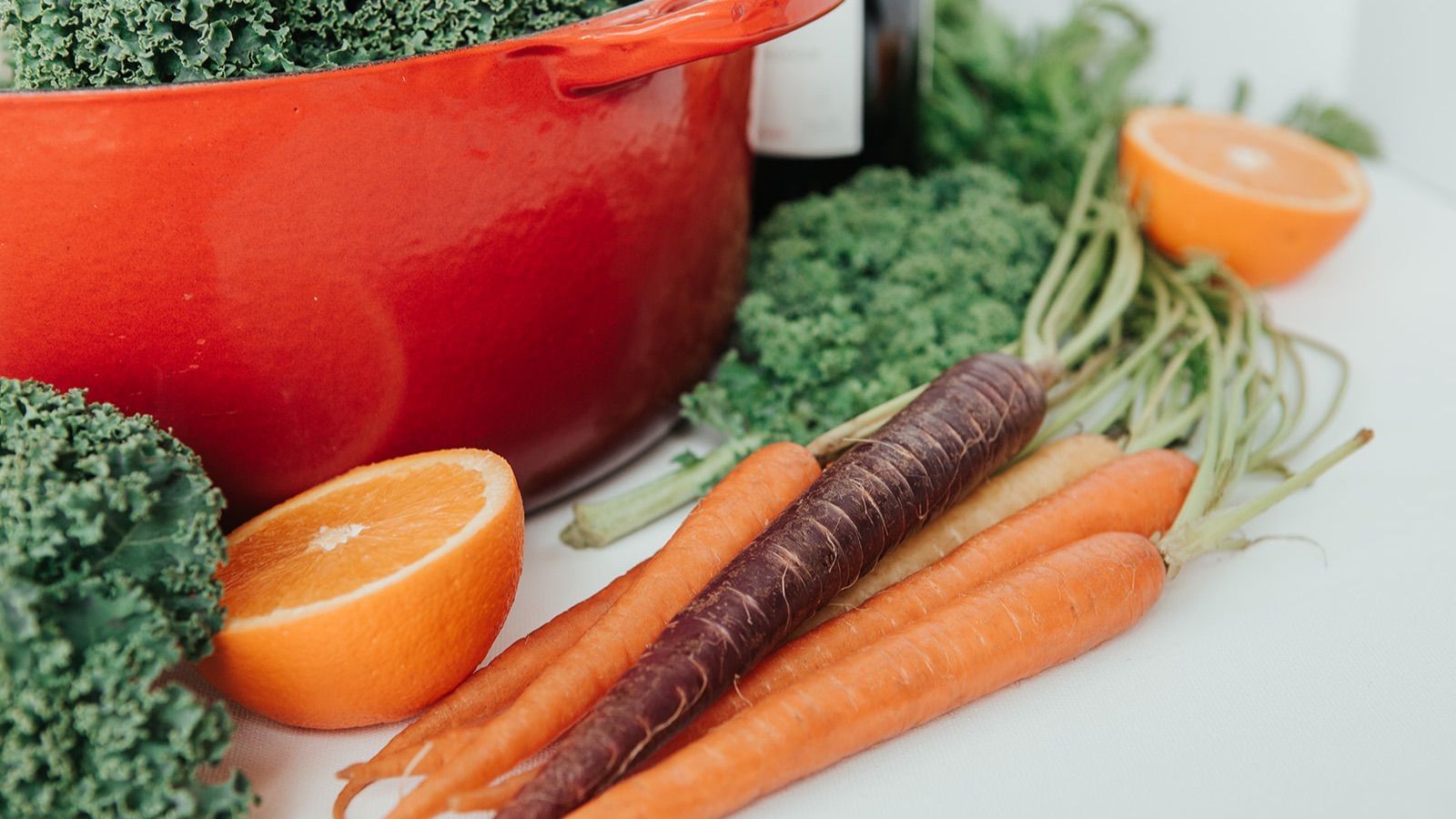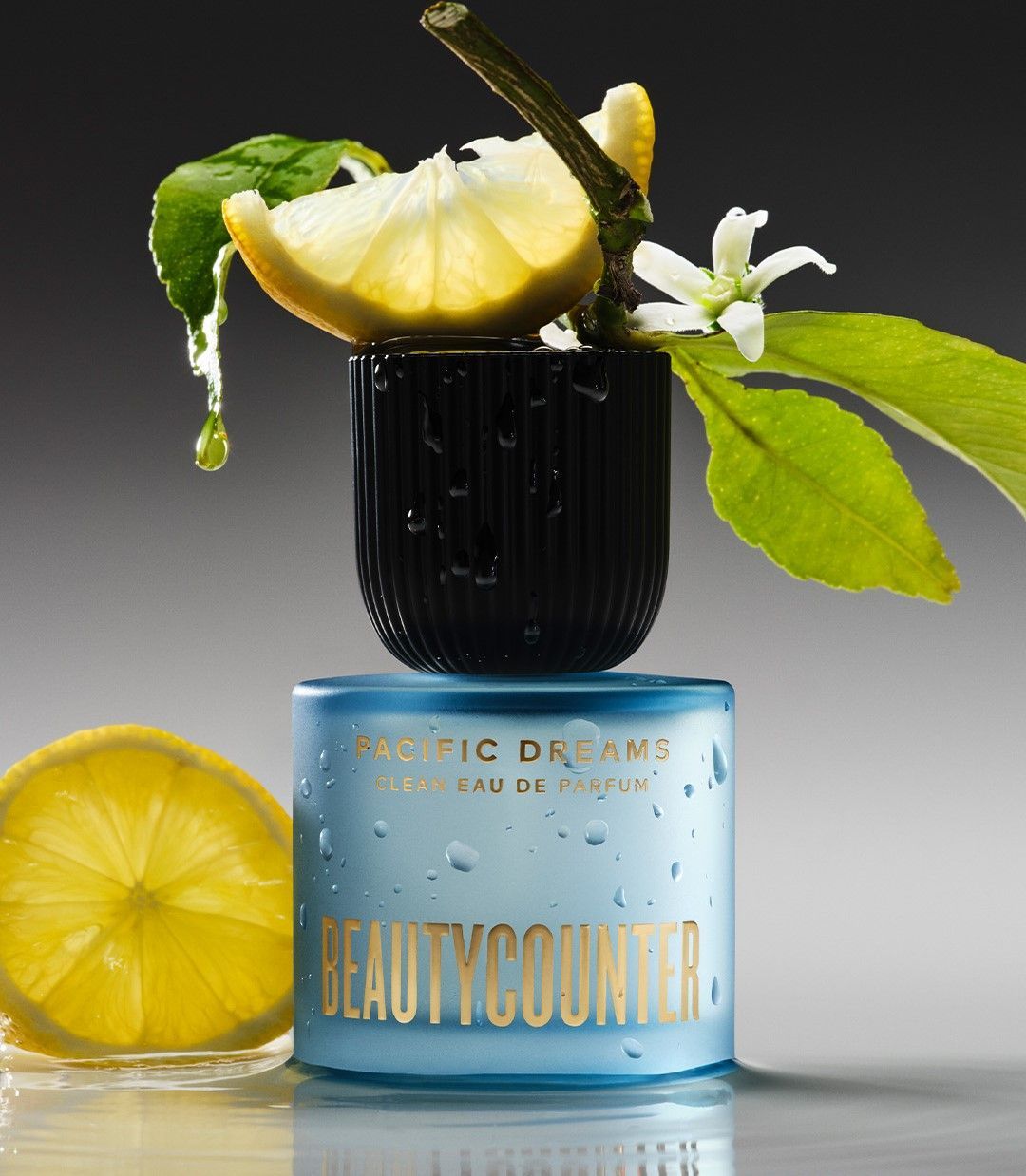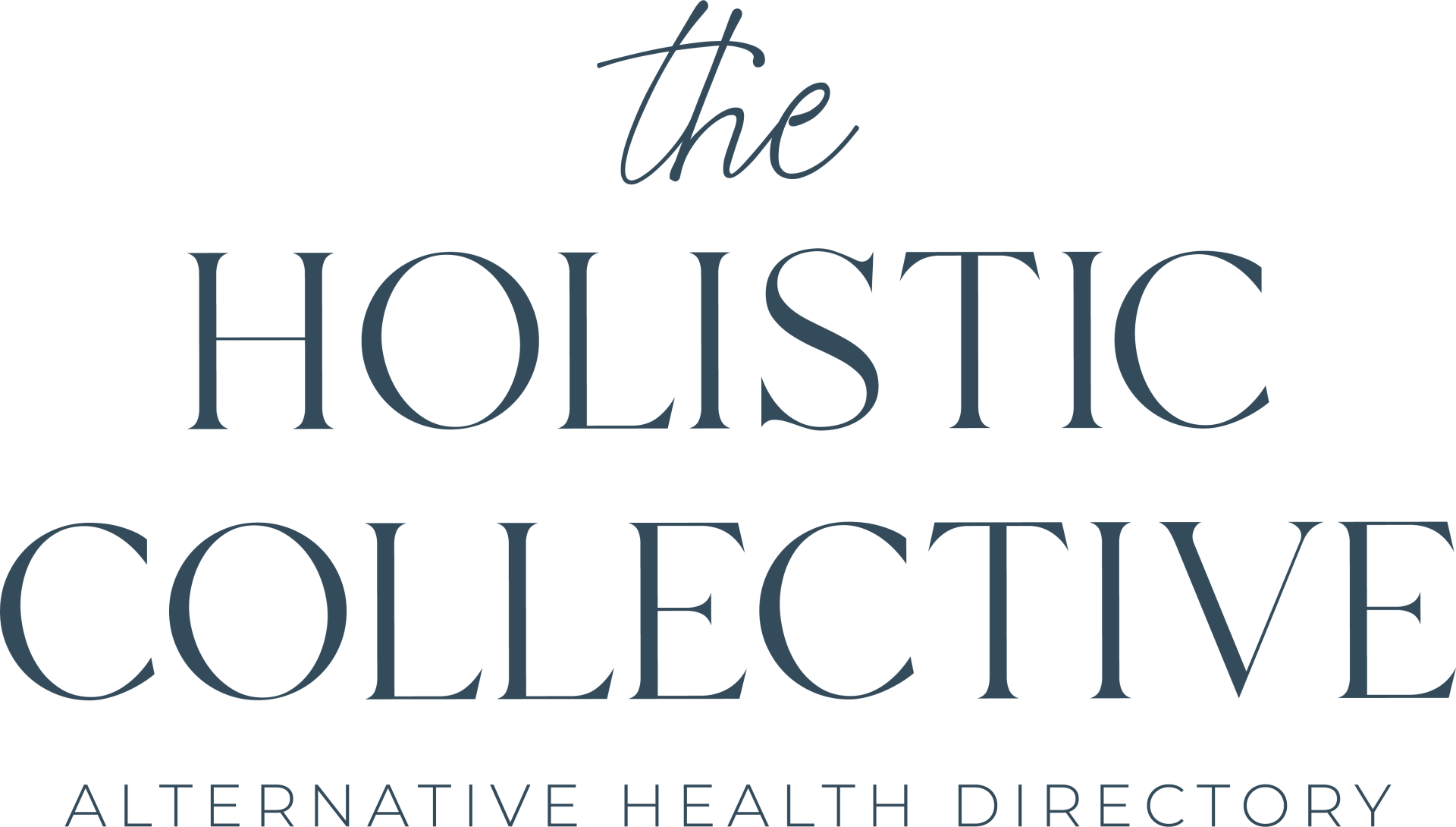Holistic Living Blog
Discover the ingredients of a holistically well-lived life with education
that propels you forward on your path to daily wellness.

If you're new to the concept of Family Constellations, it's a profoundly transformative method for addressing ancestral trauma, as well as trauma within your immediate family or any other system you're a part of – whether it's as vast as the collective or as intimate as your own individual system. My personal focus within Family Constellations is on healing within the family system and addressing ancestral trauma. Over time, I've come to recognize the immense burden we carry from previous generations, even when we have little knowledge or connection to their experiences. This inherited weight can often manifest as obstacles or feelings of being stuck in various aspects of our lives. What's truly remarkable about Family Constellations is that we don't necessarily need to know the specifics of our family history to begin healing. While some clients seek to address particular traumas, many others come to me seeking clarity and release from unresolved issues affecting their present-day lives. Through Family Constellations, we gain valuable insights into the roots of our struggles, helping us understand that these challenges didn't originate with us. This work provides a safe space to acknowledge, explore, and ultimately transform these deep-seated connections, allowing love to flow freely within our family systems and toward ourselves. This flow of ancestral love and life force energy is instrumental in bringing alignment to all aspects of our lives, leading to profound and miraculous healing. In March, I hosted a Family Constellations workshop at The Healing Society in East Nashville. It was a truly incredible experience and I'm excited to be able to bring future offerings to the Nashville area. My next workshop is scheduled for April 14th at 100 Taylor Street in Germantown. Co-hosted with my colleagues Michelle Donice Gillis, Misti Dian, Becky Parker, and Maria Brannon, "HEAL: A Night of Family Constellations, Restorative Yoga, Reiki & Sound Bath" promises to be a holistic healing experience featuring meditation, restorative yoga, reiki, and a healing sound bath. Space is limited, so be sure to secure your ticket for HEAL and mark your calendar for Sunday, April 14th. It's time to break free from generational curses and ancestral trauma. *Laura Lee Paha is an intuitive healer specializing in healing family and ancestral trauma, with a focus on supporting women grappling with "mom guilt" and empowering them to heal their mother wounds.

Welcome to 2024, If you're anything like me, you might be contemplating a new dietary approach as the new year unfolds. Perhaps you've been inspired by the Netflix twins' "You are What You Eat" experiment, or maybe you're considering cutting out certain foods or food groups, or even embracing a vegetarian or vegan lifestyle. Whatever your dietary aspirations may be, I'd like to offer you a different perspective to consider: While finding the right "diet" or meal plan to achieve your goals may seem appealing, the true key to reaching your wellness and fitness objectives lies in cultivating a healthy and resilient microbiome. Your microbiome, comprised of trillions of microbes in your gut, has the remarkable ability to transform the foods you eat into beneficial and usable substrates that promote health, longevity, and resilience in your body. Gas, bloating, food intolerances, and various health conditions are often signs of a dysbiotic microbiome – an imbalance characterized by an overabundance of harmful bacteria and a deficiency of beneficial ones. Surprisingly, the root cause of these issues often lies not in the food itself, but in the state of your microbiome. A healthy microbiome efficiently converts ingested foods into beneficial byproducts, such as short-chain fatty acids, which play a crucial role in improving insulin sensitivity, reducing fat mass, enhancing immune function, and mitigating the risk of numerous diseases. Conversely, an unhealthy microbiome generates toxic byproducts that contribute to leaky gut, inflammation, and systemic dysfunction throughout the body. While there are certain foods that should be avoided – namely, inflammatory sugars, processed junk foods, refined carbohydrates, and artificial ingredients – the focus should be on nourishing your microbiome with probiotics and prebiotics. PROBIOTICS, the beneficial microbes in your gut, play a vital role in maintaining gut health and overall well-being. Spore-based probiotics, in particular, have shown efficacy in repairing and rebuilding the gut ecosystem. If you're interested in learning more about why spore-based probiotics are superior and how they work to restore gut health, feel free to reach out to me at lori@lifebyloriz.com. PREBIOTICS , on the other hand, are non-digestible fibers found in plant foods that nourish your gut microbes. By consuming prebiotic-rich foods such as beets, parsnips, garlic, beans, and berries, you can support the growth and activity of beneficial bacteria in your gut. To optimize your microbiome health, it's important to diversify your diet and incorporate a wide range of prebiotic foods on a daily basis. Experiment with different vegetables, roots, and fruits to increase the diversity of your gut microbiota and promote overall gut health. Remember, eating is about more than just fueling your body – it's about nourishing the powerful gut bacteria that play a crucial role in controlling your metabolism, hunger, and body mass. Rather than focusing on counting calories or macros, prioritize consuming a variety of colorful, whole foods while avoiding processed and junk foods. In closing, I encourage you to shift your mindset away from restrictive diets and calorie counting, and instead focus on nourishing your microbiome with wholesome, nutrient-dense foods. By doing so, you'll not only support your own health and well-being but also cultivate a thriving ecosystem within your gut. Until next time, Wishing You Good Health, Lori

Lately, there's been a growing buzz surrounding the importance of nurturing our nervous system health. Perhaps you've caught wind of it on your social media feeds or through your favorite podcasts. Practitioners across various disciplines – psychologists, somatic experts, wellness professionals, and more – are increasingly highlighting the profound connection between a dysregulated nervous system and the myriad symptoms, conditions, and diseases that afflict many today. It's heartening to see this critical aspect of wellness finally receiving the attention it deserves. And it prompts an important question: WHICH COMES FIRST: HEALING THE MIND OR HEALING THE BODY? As a holistic health practitioner and functional nutritionist, I see the mind and body as integral parts of one interconnected vessel. My friend Pilar Gerasimo, author of The Healthy Deviant, shares this view, often referring to the human system as the "body/mind." This concept is vividly illustrated by the relationship between the gut and the brain, known as the gut-brain axis. Consider this: during fetal development, your gut and brain initially formed as a single mass of tissue. As you grew, your brain migrated to one end while your gut moved to the opposite end. Despite this physical separation, their deep connection persisted through the Vagus nerve, a vital component of the peripheral nervous system. Throughout your life, your gut continues to communicate with your brain via this nerve. That's why we often experience those familiar "butterflies in the stomach" sensation in response to exciting or alarming news. Every bodily function is influenced by both ends of the nervous system – the gut and the brain – demonstrating that the body and the mind are not separate entities but rather two integral parts of one whole. So, what does this mean for you? If you're grappling with chronic physical symptoms or conditions, chances are you're also experiencing some level of emotional dysregulation, whether you're fully aware of it or not. Conversely, if you're contending with chronic anxiety, depression, or other mood disorders, you likely have dysregulation in your gut as well. This bidirectional pathway between the gut and the brain means that stress and imbalance in one area can adversely affect the other. The condition of your gut mirrors the condition of your brain, and vice versa, just as it did in the womb when they were one. So, when it comes to healing chronic conditions, which takes precedence: addressing the gut or the brain? Whether you're tackling mental and emotional challenges or grappling with conditions like autoimmunity, diabetes, or cancer, the answer is clear: BOTH, SIMULTANEOUSLY. The good news is that my role as a Holistic Health Practitioner enables me to address both aspects effectively. I collaborate with clients to implement nutritional and lifestyle practices that calm a chronically "charged" nervous system while simultaneously devising gut-healing protocols. By focusing on both ends of the nervous system – the gut and the brain – I strive to bring about balance, clarity, and healing. If you're eager to explore further, don't hesitate to reach out via email through my website. Let's connect and embark on this journey toward holistic wellness together.

As a woman who's recently reached the half-century milestone, I found a thick envelope waiting for me in the mailbox, courtesy of AARP. It seems I've earned my ticket to join the American Association of Retired People. But hold on a moment! While I DID hit the big five-oh, I'm far from winding down. In fact, I'm fully engaged in my work as a wellness practitioner, particularly with women navigating midlife and beyond. So, pardon me if I put that AARP membership on hold for now – I've got plenty more living to do! Now, let's delve into a topic that touches us all: aging. Doesn't exactly sound like a barrel of laughs, does it? We've all heard the clichés about aging – the downhill slide, the creaky joints, the unwelcome surprises on our faces and bodies. But fear not! Today, I'm here to provide you with a roadmap to the fountain of youth. Let's tackle four key areas that tend to take a hit with age, and explore what we can do about them. Aging often feels like a gradual rearrangement of our bodily furniture. As those candles multiply on the birthday cake, our bodies start downsizing, especially in the muscle department. Hormonal shifts, decreased physical activity, lack of weight-bearing exercise, and poor nutrition can all contribute to muscle loss, a condition known as sarcopenia. But here's a twist: even if you're eating right, digestive issues and gut health can hinder the absorption of essential nutrients needed to build muscle. Addressing digestion and gut health becomes crucial for maintaining muscle mass and preventing a host of health issues associated with muscle loss. Collagen: Think of collagen as your body's architectural glue, providing support and structure to your skin, tendons, ligaments, and bones. Unfortunately, collagen production takes a nosedive as we age, thanks to factors like exposure to toxins, chronic inflammation, sedentary lifestyle, and poor nutrition. Just like with muscle building, proper digestion and gut health play a vital role in collagen production. Without addressing these foundational issues, maintaining healthy levels of collagen becomes increasingly challenging. Bone: Osteoporosis, or bone loss, is a common concern as we age. Hormonal changes, lack of exercise, inflammation, and nutritional deficiencies all contribute to this condition. Interestingly, vitamin K – essential for bone health – is primarily produced by our gut bacteria. An imbalance in gut flora can disrupt this process, leading to compromised bone density. Thus, prioritizing gut health is paramount for preserving bone health and preventing osteoporosis. Stomach acid: Proper digestion hinges on adequate stomach acid levels. Contrary to popular belief, low stomach acid – often caused by lifestyle factors like stress and poor dietary choices – can wreak havoc on digestion. Chronic low stomach acid can even lead to reflux and heartburn, prompting many to reach for acid-blocking medications that only exacerbate the issue. In reality, improving gut health and addressing lifestyle factors can often alleviate these digestive woes, restoring proper stomach acid levels and overall digestive function. Did you notice a common thread running through all these areas? That's right – the gut microbiome. The health of our gut flora influences muscle mass, collagen production, bone density, and stomach acid levels. By prioritizing gut health and adopting lifestyle changes, we can potentially reverse or prevent age-related declines in these crucial areas. So, instead of chasing after elusive fountains of youth, let's focus on nurturing the real foundation of vitality: our gut health. Until next time, here's to your health and vitality!
Become a Member
Are you a holistic care provider in Middle Tennessee ready to showcase your business?







